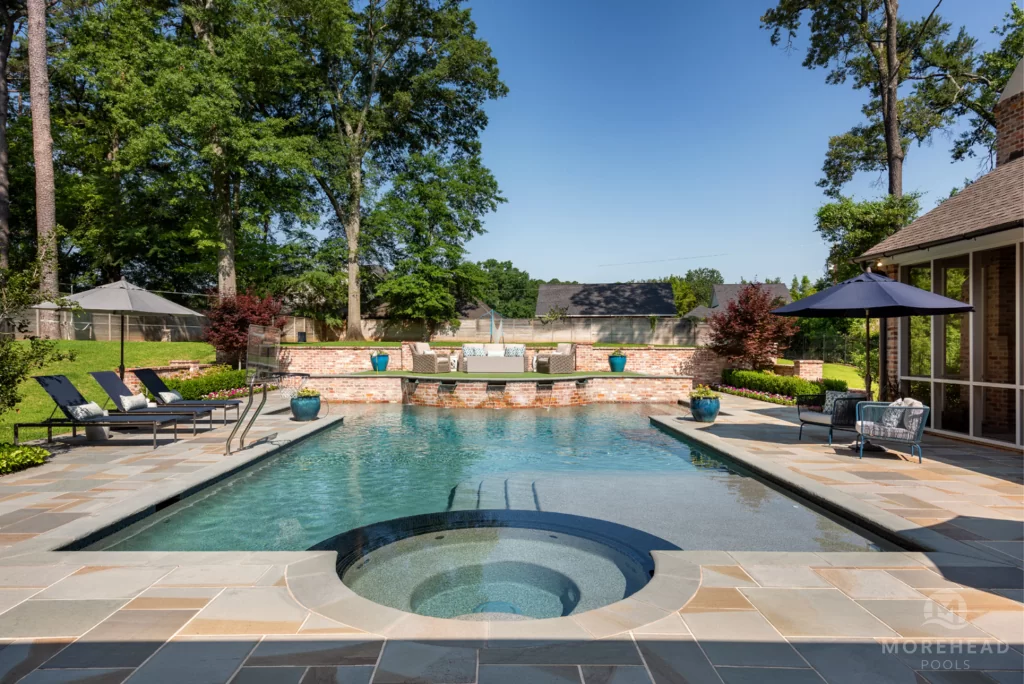There are various materials from which you can select when it comes to building your swimming pool, and choosing one suitable for your home can ensure you maximize its return on investment.
Vinyl liner pools are popular due to their lower initial costs and effortless maintenance requirements, and this material can be seen both in inground and above ground pools.
Fiberglass
Fiberglass pools are an increasingly popular choice due to the benefits they bring over other pool materials like concrete and vinyl. Not only are fiberglass pools more durable, they require less maintenance as well.
Surface of this non-porous container means water won’t quickly collect scum or become dirty, meaning you don’t need to brush its sides as frequently. This saves both time and money on cleaning costs.
These pools are resistant to algae growth, meaning fewer chemicals are necessary to keep the water balanced. Furthermore, their gel coating provides greater comfort than concrete or vinyl structures for swimming in.
Fiberglass pool molds offer homeowners who desire a personalized pool an effective option for customization, accommodating various platforms, steps and features that they desire.
Concrete
Concrete pools can be designed in any shape or size imaginable, providing endless customization possibilities. From various depths to built-in seating, steps, and lighting for added safety and enjoyment – every aspect can be adjusted and personalized!
One of the primary advantages of choosing concrete as your pool surface material is its extreme durability. It doesn’t succumb to damage from sharp objects like vinyl liners do and animal claws tend to be much less destructive compared to fiberglass pools.
Rebar, a cage of steel bars, can help add strength to concrete shell structures and help prevent them from collapsing. Rebar also increases their ability to adapt with their environment more readily.
Before installing the concrete pool shell, builders typically install all necessary plumbing to circulate pool water – this includes drains, pumps and returns as well as any other features you might desire. At this stage, builders should cap and pressure test all plumbing.
Vinyl Liner
Depending on your desired pool material choice – such as concrete, fiberglass or vinyl liner – several materials could be considered when building one in your backyard. Concrete, fiberglass and vinyl liners should all be taken into account before making a decision.
Each material offers different advantages and disadvantages, so selecting the one most suited to your needs is paramount.
Vinyl liner pools provide an easily managed surface that makes for easier cleaning and maintenance, making it less vulnerable to contaminants like algae that could otherwise wreak havoc in concrete or fiberglass pools.
Vinyl pools also cost significantly less than concrete or fiberglass alternatives and are easier to repair, plus more durable.
Vinyl liners offer several distinct benefits over concrete and fiberglass pools that have limited shape- and size-oriented options, such as installation flexibility and design/color customization options. They’re much easier to install quickly as well, which makes vinyl an attractive alternative.
Gunite
When selecting pool materials, there are various advantages and disadvantages that should be carefully taken into account. These include durability, visual appearance, texture, cost, installation, and maintenance requirements.
An extensive range of pool coping materials are available for you to select, from concrete to natural stones such as limestone, sandstone, slate and travertine, precast concrete blocks or brick tiles to pavers – each boasting its own color, pattern and aesthetic qualities.
Selecting an appropriate coping finish is also key, which should be non-slip and safe for people to walk over, sealed to protect against water damage or unwanted marks, as well as non-marking properties to prevent wear and tear over time.
Material chosen for pool coping must have a long lifecycle and be resistant to weather, chlorine, acids or salts. Furthermore, it should be easy to clean and maintain while adding visual appeal and complementing your pool design and deck layout.




